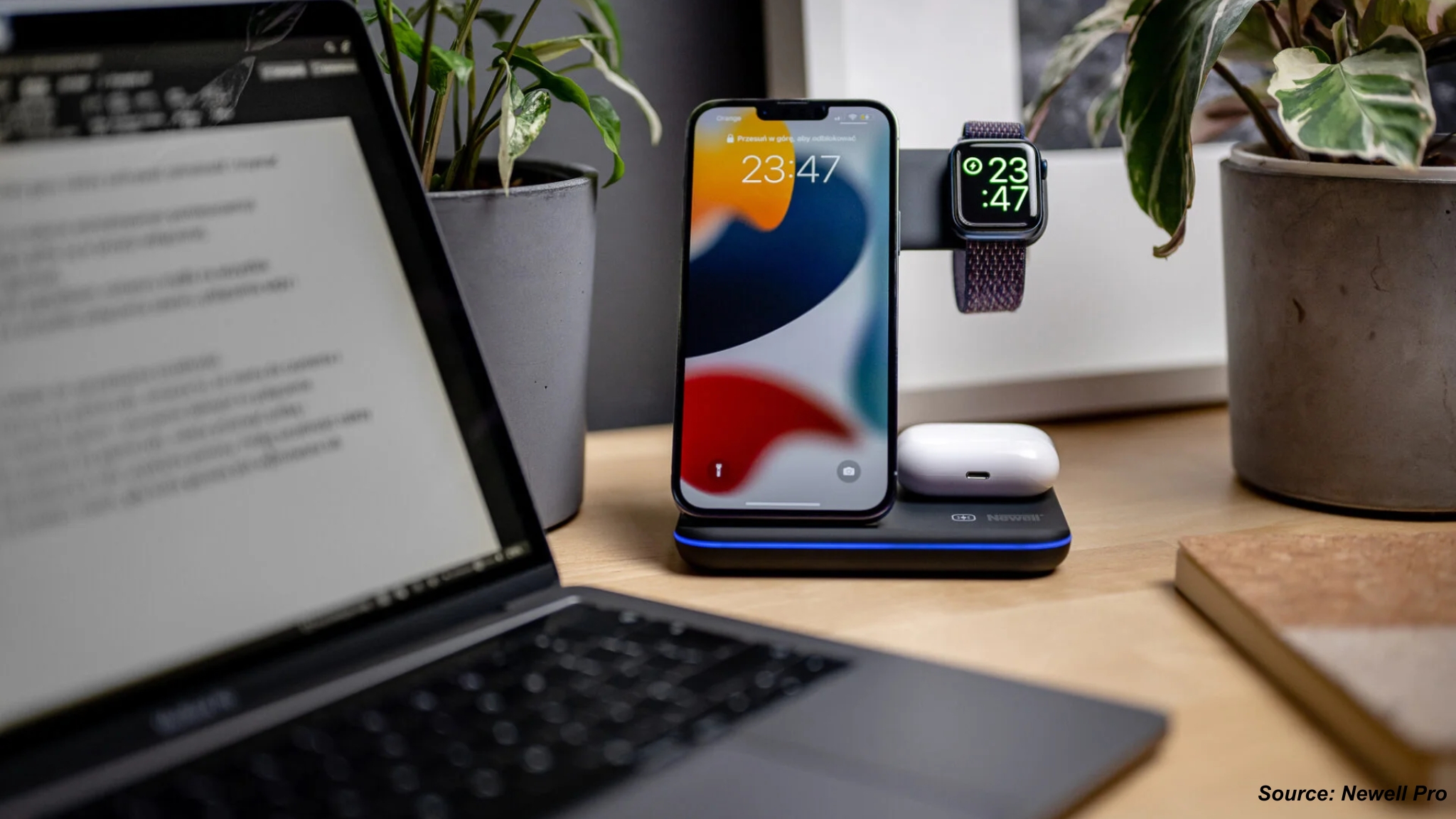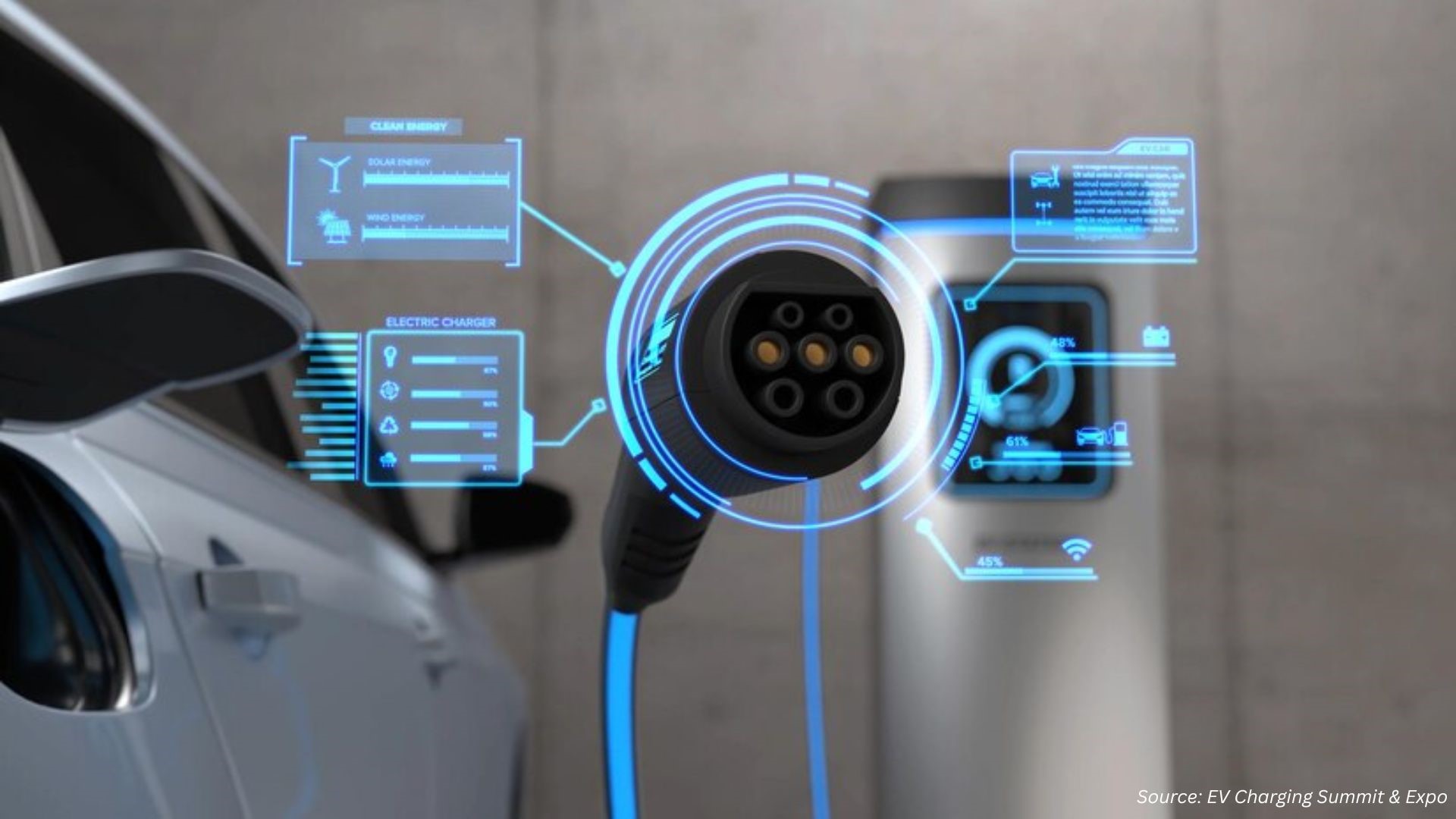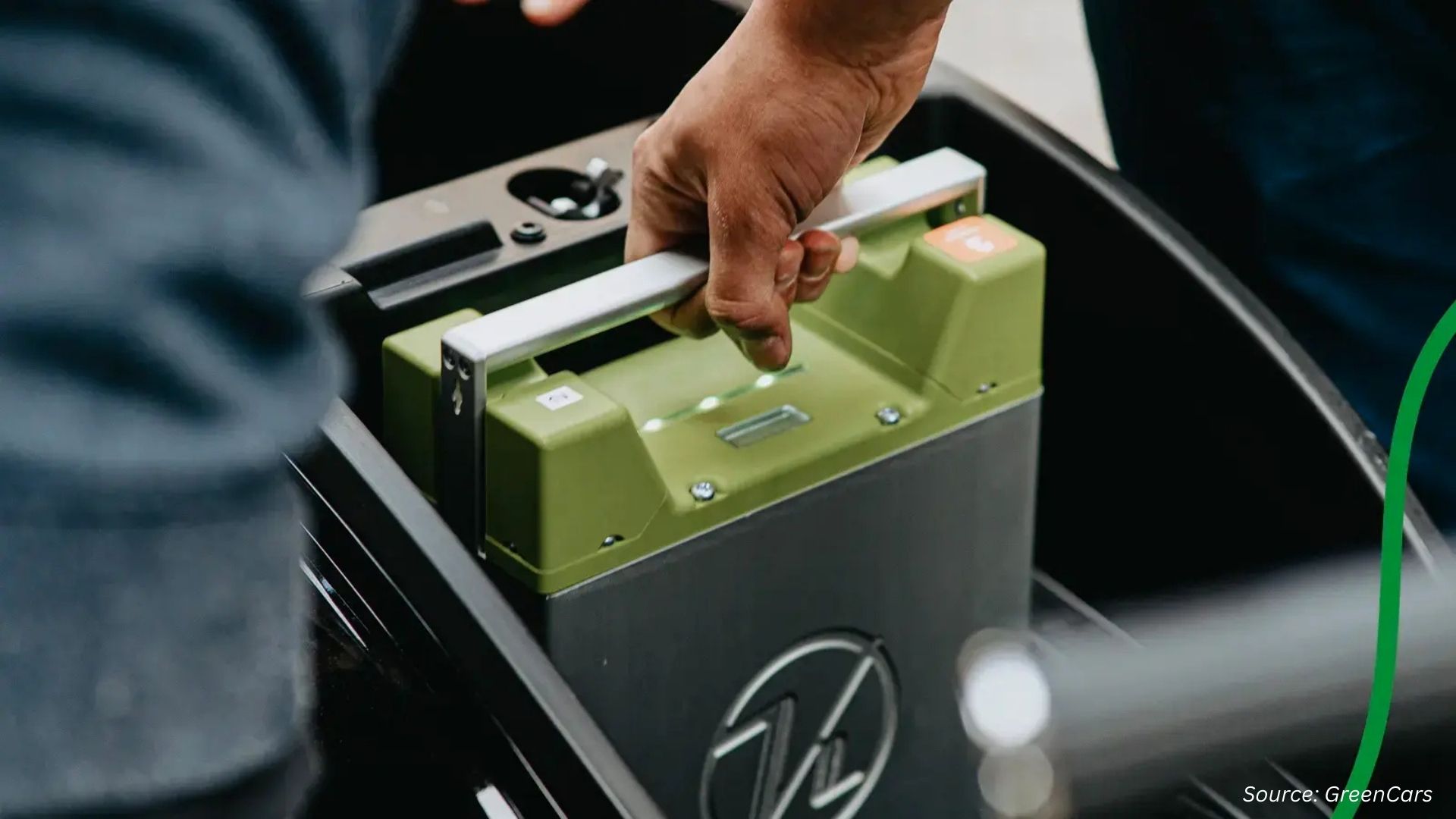What’s Powering the Induction Charger Revolution?
Published: 2025-09-11

In the ever-evolving landscape of technology, the focus on sustainability has become paramount. As consumers become more environmentally aware, the demand for eco-friendly charging solutions for consumer electronics is rising. Induction chargers have emerged as a leading force in this revolution, offering a sustainable and convenient way to power our devices. This article explores the significance of sustainable charging solutions, specifically in induction chargers for consumer electronics.
The Evolution of Consumer Electronics Charging:
The penetration of smartphones, smartwatches, and other portable gadgets in our daily lives has increased the demand for efficient charging solutions. Traditional wired chargers, while effective, pose challenges such as cluttered cables, wear and tear, and limited durability. The induction charger revolution seeks to address these issues by providing a wireless and sustainable alternative for powering our favorite gadgets.
Understanding Induction Charging for Consumer Electronics:
Induction charging for consumer electronics operates on the same principles as its counterparts in electric vehicle charging. It involves a transmitter and a receiver, with the transmitter generating an alternating electromagnetic field and the receiver converting this energy into electricity to charge the device's battery. The absence of physical connections makes it an attractive and user-friendly option for charging various consumer electronics.
Advantages of Induction Charging for Consumer Electronics:
Cable-Free Convenience: One of the primary advantages of induction chargers for consumer electronics is the elimination of cables. Device users can conveniently position their gadgets on a charging pad or surface, minimizing both cable-related clutter and the wear & tear associated with traditional charging cables.
Enhanced Durability: Conventional charging cables are prone to wear and tear, leading to frayed wires and connectivity issues. Induction chargers, with no physical connectors, eliminate this problem, providing a more durable and long-lasting charging solution for consumer electronics.
Universal Compatibility: As induction charging technology becomes more standardized than before, it ensures universal compatibility across various devices. This implies that a single charging pad can power different gadgets, ranging from smartphones to smartwatches. This, in turn, will lead to a more streamlined and user-friendly charging experience.
Efficiency and Speed: Induction chargers for consumer electronics offer impressive charging speeds, reducing the time required to power up devices. This efficiency is crucial in today's fast-paced world, in which consumers seek quick and reliable charging solutions for their gadgets.
Sustainable Power: A key aspect of the induction charger revolution is its focus on sustainability. When powered by renewable energy sources, these chargers significantly reduce the carbon footprint associated with consumer electronics charging. This is in line with the global emphasis on environmentally friendly technologies.
Leading the Charge – Sustainable Charging Solutions for Consumer Electronics:
Several companies and initiatives are at the forefront of the induction charger revolution for consumer electronics. These entities drive innovation, promote standardization, and contribute to the widespread adoption of wireless charging solutions. Here are some notable players in this arena:
Tech Giants and Integration: Leading technology companies, including Apple, Samsung, and Google, are actively integrating wireless charging capabilities into their flagship devices. In May 2023, Google launched the Pixel 7a with wireless charging capabilities, marking a significant advancement in the induction charger market. The inclusion of induction charging in smartphones and smartwatches enhances the overall user experience, setting a precedent for other manufacturers and promoting the adoption of sustainable charging solutions.
Accessory Manufacturers: Companies specializing in charging accessories, such as Anker and Belkin, are playing a crucial role in popularizing induction chargers for consumer electronics. These manufacturers produce a variety of charging pads, stands, and surfaces that cater to different devices, contributing to the diversification and accessibility of wireless charging options. In August 2023, Belkin launched a new lineup of products at IFA 2023, featuring Qi2 chargers and powerful USB-C solutions at IFA. This product launch contributes to the ongoing evolution of the induction charger market by introducing cutting-edge solutions for consumers seeking efficient and reliable charging options.
Eco-Friendly Materials and Design: Sustainable charging solutions extend beyond the technology itself. Companies are incorporating eco-friendly materials in manufacturing induction chargers, aligning with consumer preferences for environmentally conscious products. Additionally, the design of these chargers emphasizes energy efficiency and recyclability, further reducing their environmental impact.
For instance, Belkin offers charging stations that detect the device's power needs and adjust the output accordingly, making them an excellent alternative to Apple Charging Stations for those who use multiple devices.
Additionally, Belkin's Boost Up Wireless Charging Dock is an excellent choice for Apple users who want to switch to wireless charging. This is due to its environmentally friendly nature and ability to reduce the need for disposable batteries and wasteful power. These developments reflect the companies' commitment to environmental sustainability and the promotion of eco-friendly practices within the consumer electronics industry.
Qi Standardization: The Qi wireless charging standard has emerged as a unifying force in the world of induction charging for consumer electronics. Adopted by a multitude of manufacturers, the Qi standard ensures compatibility across devices, promoting a seamless and standardized experience for users. The Qi standard, developed by the Wireless Power Consortium, is the most widely adopted standard for wireless charging. It is used in various devices, ranging from smartphones to kitchen appliances, offering convenience and interoperability across different brands and devices.
Almost every company has an induction charging with Qi Standard and holds a market share of more than 90% in the overall charging standard segment. This segment is highly competitive, and the market needs to be more cohesive. According to the Wireless Power Consortium (WPC), there are over 9000 different wireless charging products that are Qi-certified.
Moreover, Qi v2.0, the next generation of the Qi wireless charging standard, brings several new features and improvements. These include magnetic attachment, ensuring perfect alignment between the charger and the device without the need for precise placement. Qi v2.0 devices can charge up to 50% faster than Qi 1.2 devices, boast higher efficiency, and offer greater interoperability with all existing Qi 1.2 devices. Additionally, the Qi standard is the first to be supported by Samsung and Apple, two of the largest and most influential smartphone manufacturers.
Innovations in Form Factors: The induction charger revolution is not just about functionality but also about pushing design boundaries. Companies such as Samsung and Xiaomi are exploring innovative form factors, such as furniture with built-in charging surfaces and multi-device charging stations. These efforts are aimed at making wireless charging an integral part of our daily lives.
Challenges and Future Outlook: While induction chargers for consumer electronics offer numerous advantages, challenges persist in their widespread adoption. These challenges include the need for increased standardization, addressing concerns related to efficiency, and making these solutions more accessible in terms of cost.
The future outlook, however, is optimistic. Ongoing research and development are dedicated to improving the efficiency of induction chargers, making them more cost-effective than before, and expanding their compatibility with a broader range of devices. We expect more seamless and integrated wireless charging solutions for consumer electronics as technology advances.
The Role of Consumers in Driving Change: Consumer awareness and choices play a pivotal role in driving the adoption of sustainable charging solutions. As more individuals prioritize environmentally friendly products, the demand for induction chargers will likely surge. Consumers can actively contribute to the induction charger revolution by choosing devices that support wireless charging and encouraging manufacturers to embrace eco-friendly and sustainable practices.
Conclusion:
The induction charger revolution in consumer electronics charging signifies a significant shift toward sustainability and convenience. As consumers increasingly seek wireless and eco-friendly solutions, induction chargers are poised to become the norm rather than the exception. The collaboration between tech giants and accessory manufacturers and a focus on eco-friendly design propels the industry forward.
As we continue to integrate induction chargers into our daily lives, the positive impact on the environment becomes evident. The elimination of cables, enhanced durability, and the use of sustainable materials contribute to a cleaner and greener future. Through continuous innovations and a collective dedication to sustainability, induction chargers are not just changing how we power our devices–they are shaping a more environmentally conscious and technologically advanced world.
About the Author
 Saurav Sarkar is an accomplished researcher and writer with over three years of experience in conducting thorough research. His passion for exploring various subjects and delving into in-depth analysis has led him to develop a keen understanding of research nuances. He remains committed to staying current with the latest market trends, recognizing their impact on businesses and society. Through his work, Saurav aims to contribute to knowledge dissemination and foster informed discussions on critical issues.
Saurav Sarkar is an accomplished researcher and writer with over three years of experience in conducting thorough research. His passion for exploring various subjects and delving into in-depth analysis has led him to develop a keen understanding of research nuances. He remains committed to staying current with the latest market trends, recognizing their impact on businesses and society. Through his work, Saurav aims to contribute to knowledge dissemination and foster informed discussions on critical issues.
About the Reviewer
 Sanyukta Deb is a seasoned Content Writer and Team Leader in Digital Marketing, known for her expertise in crafting online visibility strategies and navigating the dynamic digital landscape. With a flair for developing data-driven campaigns and producing compelling, audience-focused content, she helps brands elevate their presence and deepen user engagement. Beyond her professional endeavors, Sanyukta finds inspiration in creative projects and design pursuits.
Sanyukta Deb is a seasoned Content Writer and Team Leader in Digital Marketing, known for her expertise in crafting online visibility strategies and navigating the dynamic digital landscape. With a flair for developing data-driven campaigns and producing compelling, audience-focused content, she helps brands elevate their presence and deepen user engagement. Beyond her professional endeavors, Sanyukta finds inspiration in creative projects and design pursuits.
















Add Comment